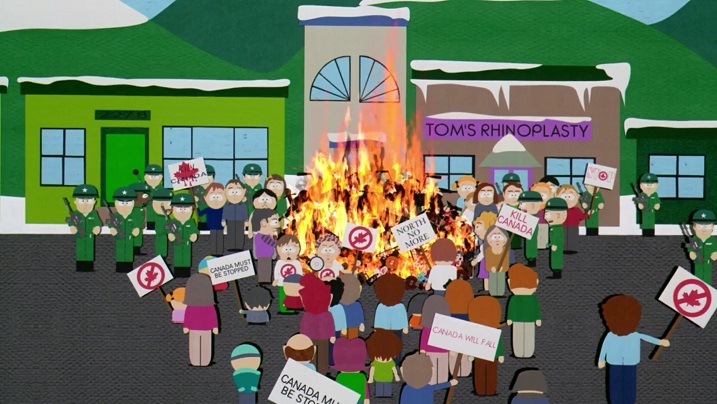
 |
| Photo © 1999 Paramount Pictures/Warner Bros. Entertainment |
| Academy Award Nominations: | |
| Best Original Song: "Blame Canada" | |
| Other Awards: | |
| New York Film Critics Circle: Best Animated Feature | |
| Los Angeles Film Critics Association: Best Music (Trey Parker & Marc Shaiman) | |
| Permalink | Home | 1999 | ABC | Blog |